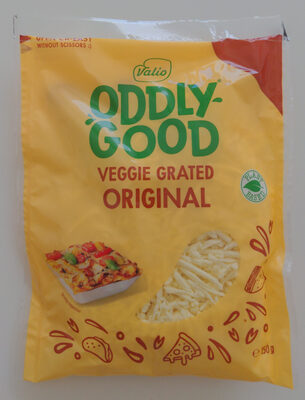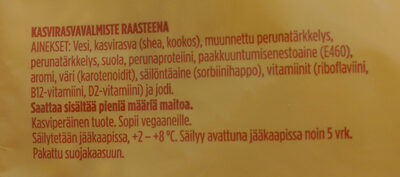OddlyGood Veggie Grated Original - Valio - 150 g
This product page is not complete. You can help to complete it by editing it and adding more data from the photos we have, or by taking more photos using the app for Android or iPhone/iPad. Thank you!
×
Barcode: 6408430342105 (EAN / EAN-13)
Common name: Kasvirasvavalmiste raasteena
Quantity: 150 g
Packaging: Plastic
Brands: Valio
Categories: Plant-based foods and beverages, Plant-based foods
Labels, certifications, awards:
Vegetarian, Vegan, Avainlippu
Manufacturing or processing places: Fazerintie 2, 01230, Vantaa, Suomi
Link to the product page on the official site of the producer: https://www.valio.fi/tuotteet/kasviperai...
Stores: K-Supermarket
Countries where sold: Finland
Matching with your preferences
Report a problem
Data sources
Product added on by mvainola
Last edit of product page on by mvainola.
Product page also edited by openfoodfacts-contributors.












